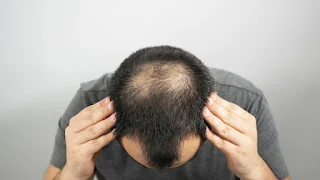Hair loss is a very common problem, especially among men, about 85% of whom are affected by this condition by the time they reach middle age, and there is not much that can be done to stop it.
Now, a team from the University of Manchester says they have discovered an ancient biological mechanism that triggers a stress response in hair follicle cells, leading to restricted hair growth.
The team explains that the response to biological stress can cause hair follicles to stop and die, depriving people of their hair. As a result, they say they may be a step closer to a cure for hair loss.
The team unexpectedly discovered the link in a laboratory experiment where they were testing a drug to see if it boosted human scalp hair follicles.
The analysis revealed that when a mechanism called the integrated stress response (ISR) was activated, it had a negative effect on hair growth.
This response is important because it allows cells to inhibit usual activities when exposed to stress, and become partially inactive to adapt and deal with the stress.
For example, a hair follicle cell may experience stress as it ages and becomes less able to produce protein properly.
However, if the Integrated Stress Response (ISR) is overly activated, it may cause cell death, putting an end to healthy hair growth.
As a result, finding a way to stop the overactivity of the integrated stress response may lead to a treatment to prevent hair loss, the team said.
The team is now looking to better understand the impact of the integrated stress response in hair follicles and study its activity in people with hair loss conditions.
"We are very optimistic because we believe that activating this pathway could play an important biological role in restricting hair growth in those with hair loss conditions, which means targeting it could lead to new treatments," said Dr. Talvin Borba, senior author of the study.
"When we look at hair follicles under a microscope, it's amazing how consistent the response is between hair follicles from different people," added Derek Bye, co-author of the study.
Although there are no current medications known to affect the integrated stress response, there are some under investigation in other contexts, Dr. Borba noted.
The full study results were published in the journal Plos One.


Much needed.
ReplyDelete